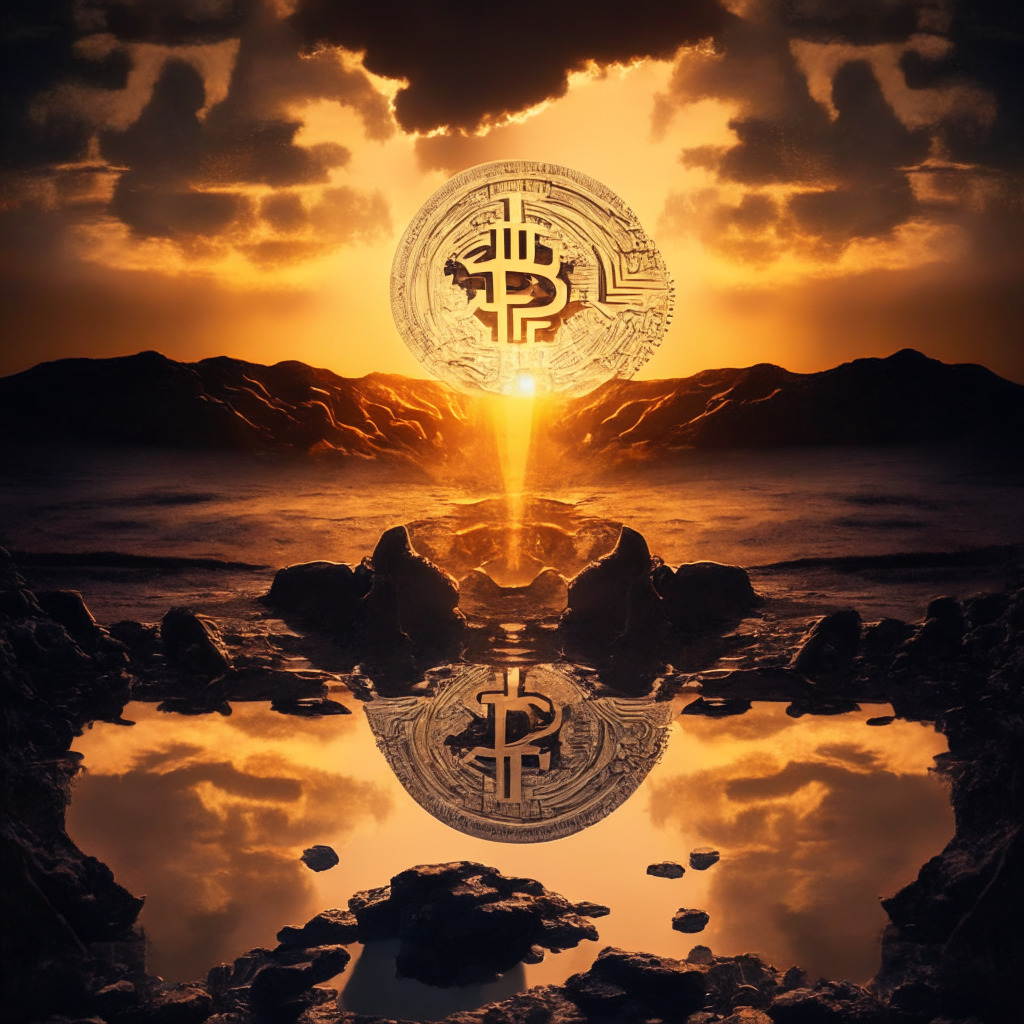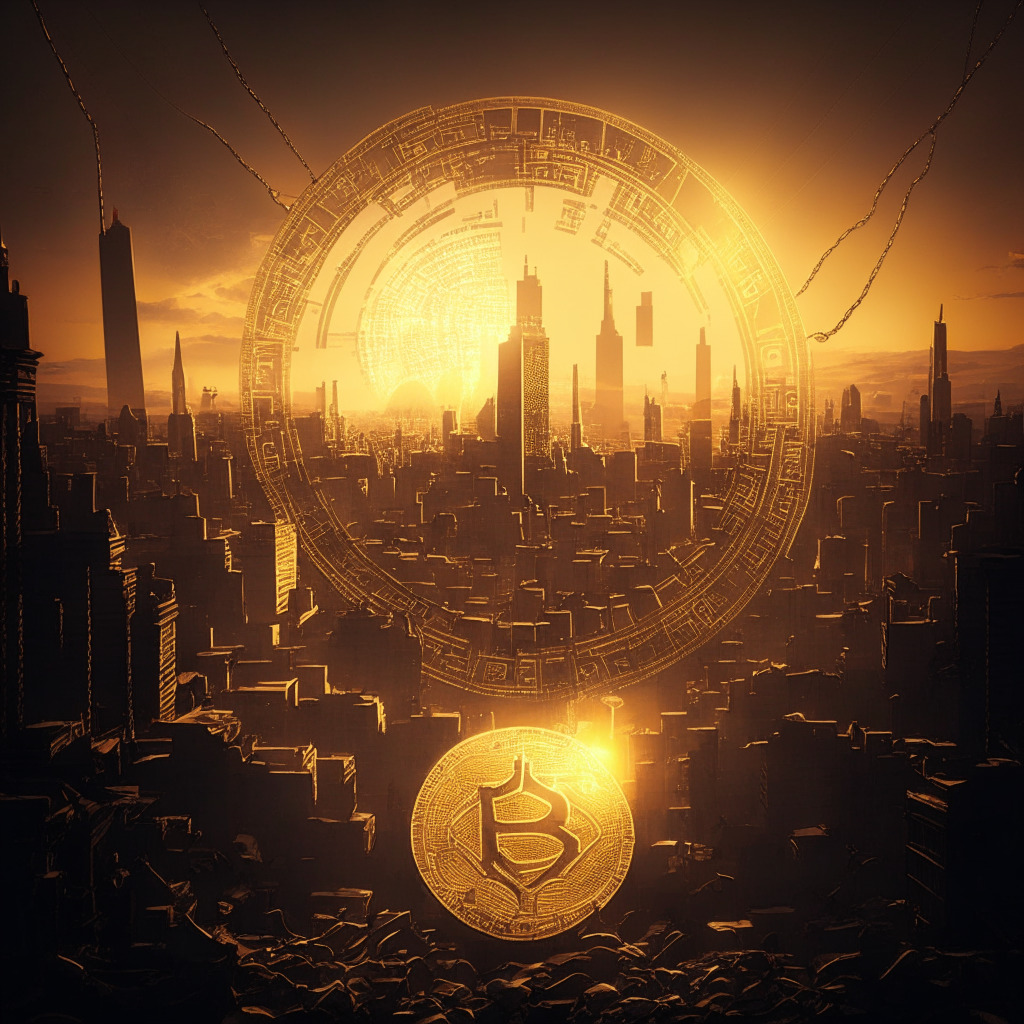The Ethereum Name Service (ENS) is set to unveil the .box Top-Level Domain (TLD) in September 2023, marking the first domain name extension routable by both blockchain-native and traditional web DNS. This collaboration between ENS and My.box aims to help users own DNS-based and ENS-based names while bridging the gap between the traditional web and blockchain technology.
Search Results for: Censo
Hong Kong Crypto Expansion vs China’s Censorship: Who Wins This Battle?
Hong Kong regulators finalize virtual asset trading preparations, allowing exchanges to provide services to retail investors. Crypto exchange Gate.io launches its Gate.HK platform, while ZA Bank plans to offer virtual asset trading under the new licensing regime. In contrast, Terraform Labs CEO Do Kwon faces imprisonment, and memecoins’ prices fall over 50% in two weeks, highlighting their short-term hype-driven value.
Baidu’s AI Chatbot: Sensitivity Revolution or Censorship Strategy? Pros, Cons & Global Impact
Baidu’s latest AI chatbot claims to communicate with zero errors on sensitive topics, raising questions about its capabilities and potential censorship strategies. Striking a balance between freedom of expression and sensitivity is crucial as AI technology continues to advance.
Meme-Coin Fever vs Bitcoin’s Core Purpose: Balancing Utility, Fees, and Censorship-Resistance
The rise of Bitcoin-based meme coins and NFTs after the Taproot upgrade has caused increased transaction fees and blockchain congestion. This highlights a conflict within the Bitcoin community between purists, who see it as an alternative currency, and advocates for its open nature. Addressing rising fees and preserving decentralization and censorship-resistance must be prioritized.
Social Media Platform X, XRP Fiasco, and the Trend Shift in Crypto-Dynamics
“Elon Musk’s platform X is under criticism for suspending an XRP-focused account, raising questions of censorship. Meanwhile, XRP’s disputed past, including a lawsuit from SEC, remains a potential influencing factor. Amidst these, the platform aims for multiservice extension while an SEC investigation into Musk occurs. These instances indicate a shift in crypto and social media dynamics.”
Crypto Safety: Navigating Vulnerabilities with Concordium’s Web3 ID Platform
“In an era where cryptocurrency scams are tricky, identity verification becomes an imperative preventative measure. Lars Seier Christensen, founder of Concordium, emphasizes its necessity stating, “To prevent scams, there has to be some level of identity verification.” Concordium’s Web3 ID platform, ensures user control over their data, and minimum discrepancy in personal information, constituting a significant stride toward safer crypto transactions.”
Establishing Authenticity in a Digitized World: Nodle, Adobe, and Linux Join Forces
Nodle has collaborated with Adobe and the Linux Foundation to create a blockchain-based solution, named ContentSign, for verifying the authenticity of real-world content. This kit verifies data integrity from its inception, and could be beneficial for sectors like journalism, where authenticity proof is essential. The technology also faces challenges due to the rapid AI advancements, requiring robustness and adaptability to maintain its effectiveness.
Bitcoin Awareness Rises in Cuba amid Fears of National Currency Decline
Amid devaluation of the Cuban peso and inflation, the crypto community in Havana, Cuba is turning to Bitcoin due to its relative financial stability. Despite governmental restrictions, Cubans have developed ways to buy and sell Bitcoin, hoping for a more economically secure future.
Downfall of Ethereum’s OFAC Compliance: Navigating the Regulatory Landscape in Blockchain Future
“The Merge upgrade resulted in a significant drop in OFAC (Office of Foreign Assets Control) compliance for Ethereum. Adherence to OFAC standards risks Ethereum’s neutrality. The decline is peculiar as non-compliance impacts the network’s benefit. This presents complexities of operating in a decentralized world against regulatory frameworks. Can effective digital asset management coexist with strict regulations?”
Machiavellian Principles as a Key to Decentralized Governance: Opportunities and Challenges
“Machiavellian principles are seen as a potential solution for issues concerning decentralized autonomous organizations (DAOs) such as power centralization, according to venture capital firm Andreessen Horowitz. DAOs must balance power, entertain constant opposition, and adopt lockup mechanisms for stakeholders to achieve effective decentralized governance.”
Decentralized Future: How Blockchain Transforms the Adult Content Industry Amidst Controversies
“Content creators are exploring decentralised alternatives amid issues with traditional platforms like OnlyFans and Patreon. Web3 technology promises greater control and financial security, shifting power away from intermediaries. Blockchain-based alternatives like Only1 are offering creators a chance to realise their full earning potential and evade censorship.”
Blockchain Revolution In Content Creation: A New Dawn Or Uncertain Terrain?
“Content creators are pivoting towards decentralized platforms like Web3 amid payment issues and censorship fears. Blockchain technology promises full earning potential and low deplatforming risk, reflecting a power shift from intermediaries to creators. However, questions about potential challenges and unpredictability as a result of decentralization remain.”
PayPal’s PYUSD Stablecoin: Shining Beacon or Misstep in Crypto Space?
“PayPal’s proprietary stablecoin, PYUSD, is criticized due to concerns over centralization and potential vulnerability flaws. Its code could pose adoption hindrances and potentially wipe out balances. The crypto community sees PYUSD as a setback, contrasting the ethos of cryptocurrency.”
The Silent Threat: How CBDCs Could Erode Your Financial Freedom
“Central bank digital currencies (CBDCs) offer governments easy access to data collection, surveillance, and asset seizure. Although promoted for benefits such as tax collection and combating financial crime, these programmable money forms may lead to increased transaction censorship and misuse from state control. Counteracting this potential erosion of liberty, cryptocurrencies offer a means to safeguard transactional rights.”
Navigating the Tightrope: China’s Crypto Clampdown and the Global Blockchain Future
“80 Chinese accounts promoting cryptocurrency were shut down on Sina Weibo, raising concerns about blockchain freedoms. These accounts, with 8 million followers, were part of ongoing crackdowns following China’s 2021 cryptocurrency ban with primary objective of protecting property safety.”
Worldcoin: Decentralizing Digital Identity or Invading Privacy?
“Worldcoin, despite controversies, showcases a potentially groundbreaking use of blockchain: creating an immutable, biometrically authenticated digital identity. While the project faces both ethical dilemmas and security concerns, its potential in revolutionizing finance, political systems, and social structures cannot be overlooked. A critical question remains: trusting a private entity with our digital identities.”
Decentralizing E-commerce: Analyzing the Revolutionary Potential of Bison Relay v0.1.8
The introduction of Bison Relay v0.1.8, a decentralized e-commerce system by Decred, is poised to transform digital retail dynamics. With features for enhanced user experience, this platform promotes increased control, improved privacy, and strengthened security in the online retail realm, potentially redefining the e-commerce landscape.
When Blockchain Meets Regulation: A Tale of NFTs, SEC and Unseen Chains
In an unprecedented move, the U.S. SEC has classified a non-fungible token (NFT) as a security, underlining the regulatory complexities as crypto technologies evolve. The incident serves as a warning to crypto projects, revealing that despite the inherent freedom within the crypto landscape, invisible chains bound them when engaging in regulated activities.
KYC Regulations vs Permissionless Money: The Crypto Crossroads Unveiled by Tornado Cash Crisis
“The recent arrest of Tornado Cash founders has raised questions about the coexistence of KYC regulations and permissionless money. With platforms like Bitcoin’s Lightning Network and MetaMask allowing near-traceless transactions, the intrusion of KYC challenges the decentralization and anonymity that cryptocurrencies offer. This situation brings the future of crypto at a crossroads between regulatory vigilance and sector’s initial ethos.”
Unveiling the Crypto World’s New Star: Analyzing Friend.tech’s Promising Start and Potential Pitfalls
Friend.tech, a decentralized social media platform, is grabbing attention in the crypto community with about 64,500 unique addresses interacting in the initial two weeks. It generated $1.12 million in fees in 24 hours, also allowing users to buy “shares” in social media personas. However, concerns around privacy and longevity remain.
Unmasking Crypto’s Theatre of Absurd: Decentralization Illusion vs Real World Application
“Crypto appears to be an elaborate facade, with skepticism regarding the authenticity of use-cases. The recent market trends unveiled progress, while also revealing the failings of DeFi and Web3. Governance systems are under scrutiny, and real economic activity seems sidelined for speculation. However, a genuine decentralised future remains the goal.”
Striking the Golden Balance: Centralization vs Decentralization in Ethereum’s Liquid Staking Landscape
“Ethereum is on the verge of transformative change thanks to liquid staking. While centralized liquid staking protocols currently dominate, they pose systemic risks. Decentralized protocols exist, but face scalability issues and have a small portion of ETH staked. The challenge is to strike a balance between scalability and decentralization, potentially by reducing the minimum capital requirement to run a validator node.”
Blockchain vs. Banks: The Unseen War on Crypto in Adult Entertainment Industry
“Digital currency and adult entertainment sectors face increasing scrutiny from regulators, influencing crypto platforms to implement rigid KYC and AML protocols. This leads to professionals being blacklisted, and platforms like SpankPay and WetSpace struggling to secure banking partnerships.”
Cryptocurrency Beyond Wealth: Exploring Real-World Uses of Crypto Tech
“Crypto’s primary use is still to amplify wealth, but its potential extends well beyond that. Blockchain technology can revolutionize self-custody of assets, enable peer-to-peer connections, and spur innovative business models. Overcoming rampant speculation to highlight crypto’s actual utility is crucial.”
PayPal’s Entry Into Crypto: A Boon to the Industry or Threat to Web3’s Future?
“PayPal’s announcement of a stablecoin on Ethereum, followed by imposter tokens looking to cash in on its success, indicates possible future rug pulls. PayPal’s decision to operate within the established financial system counters crypto’s aim to break from traditional financial structures. It boosts crypto’s credibility, yet risks changing Web3’s face.”
Ethereum-based PYUSD: A Harbinger of Mainstream Adoption or Threat to Asset Control?
The new Ethereum-based stablecoin, Paypal USD (PYUSD), has stirred the crypto community. While many view it as a step towards Ethereum’s mainstream adoption, concerns about eroding decentralization and asset control are also rising. Future impacts on Ethereum’s market value are being closely watched.
Exploring the Impacts of PayPal’s Stablecoin PYUSD: Vehicle for Financial Inclusion or Corporate Gain?
“PayPal’s U.S. stablecoin, PYUSD, has sparked interest in the crypto world. Unlike smaller cryptofirms, traditional giants like PayPal can influence regulators to accommodate their aspirations. However, whether PYUSD will democratize access or predominantly serve business interests remains uncertain.”
Centralization vs Decentralization: The Battle for our Digital Existence
“In an era where digital advancement accelerates, centralized platforms like Twitter, now “X”, threaten user safety, privacy, and control. They replicate China’s WeChat convenience, but also its control over autonomy and data. However, blockchain and cryptography offer routes towards decentralized, user-controlled digital existence.”
Elon Musk’s Stand on Free Speech: A Gamechanger for Social Media or a Potential Legal Nightmare?
“Musk’s commitment to defend users arbitrarily punished by employers over opinions expressed on his platform, X, could redefine interactions between social media and users. His pledge that X will shoulder legal fees for injustices resonates with many, but also raises concerns about responsibility and accountability.”
Crypto Market Crossroads: DeFi Security Woes, Regulatory Uncertainty, and Ethereum’s Monumental Growth
“Recent DeFi security incident, leading to $61 million theft, raises questions about security robustness in this sector. HashKey and OSL’s milestones signify Hong Kong’s evolving crypto scene. As US DoJ weighs charges against Binance, CoinBase counters delisting reports, while Ethereum celebrates its 8th birthday amid tumultuous times in crypto market.”
Regulation and Blockchain: Stifling Growth or Encouraging Investment?
The New York Attorney General is investigating financial transactions involving Digital Currency Group (DCG) and Genesis Global Capital, raising questions about the impact of regulations on the blockchain industry. While some fear regulations could damage the decentralizing nature of blockchain technologies, others suggest it could offer comfort and boost confidence amongst investors by ensuring transparency, accountability, and fair practices.
Crypto Conundrum: China’s Unofficial Crypto Boom Despite Ban and Its Impact on Binance
Despite China’s ban on cryptocurrencies in September 2021, Chinese traders reportedly facilitated $90 billion worth of crypto trades on Binance in one month this year, accounting for one-fifth of Binance’s global volume. These trades are enabled through virtual private networks, allowing users to bypass censorship. However, this situation could escalate Binance’s regulatory challenges in the U.S. despite its growing popularity in the Chinese market.






























